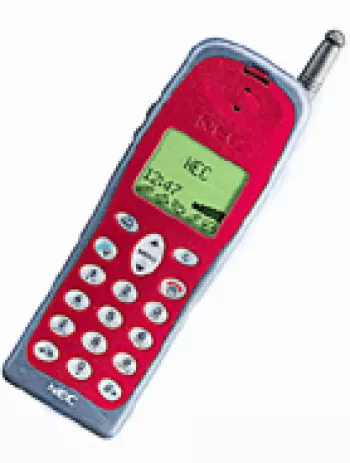
NEC e540/N411i Overview
The NEC e540 and its variant N411i were released in the first quarter of 2005, marking a significant step in NEC’s mobile phone lineup during the era of feature phones. These models were designed with a focus on essential functionalities bundled in a compact and user-friendly design.
Design and Build
The NEC e540/N411i phones feature a compact form factor with dimensions of 93 x 46 x 24 mm and a weight of only 95 grams. The design was prioritized for maximum portability and ease of use, catering to consumers who preferred lightweight and easily carriable devices. The housing came in a sleek silver color which added a modern touch to its appearance.
Display
The devices sport a 1.9-inch TFT screen with a resolution of 176 x 220 pixels, capable of displaying up to 65,000 colours. The screen size and resolution were typical for feature phones of that era, providing clear visibility for text and simple graphics which were satisfactory for basic phone operations and limited multimedia displays.
Camera
One of the key features was the inclusion of a 1.3 MP main camera. While modest by today's standards, it was sufficient for casual photography and capturing everyday moments. The ability to record video was also supported, albeit at basic resolution, which added a multimedia edge to the device.
Battery Life
The NEC e540/N411i was equipped with a removable Li-Ion 850 mAh battery. The battery life allowed for up to 200 hours of standby time and up to 3 hours of talk time. This was relatively competitive for feature phones during that period, offering adequate longevity for typical usage patterns.
Network and Connectivity
Designed for GSM networks, the phones supported GSM 900, 1800, and 1900 bands, with GPRS Class 10 for basic internet access. The absence of EDGE meant limited data speeds, but this was typical for the time. Connectivity features included Bluetooth 1.2 and infrared port, allowing for simple file transfers and connectivity with compatible devices. Proprietary USB ensured physical connectivity for charging and data transfer. The exclusion of WLAN and radio was a limitation, yet aligned with the feature phone market’s expectations.
Storage and Memory
Internally, the phones provided 26MB of storage, which was sufficient for saving contacts, messages, and some multimedia content given the lack of a card slot for expansion. The phonebook could accommodate up to 500 entries, while call records maintained logs of 20 dialed, received, and missed calls each, making it functional for basic telecommunication needs.
Sound and Multimedia
Despite the absence of a loudspeaker or 3.5mm audio jack, the devices supported vibration and downloadable polyphonic ringtones for incoming alerts. Though there was no built-in radio, downloadable games enhanced user engagement to some extent, in addition to basic Java support ensuring the capacity for running simple applications.
Messaging and Browser
Messaging capabilities included SMS, EMS, MMS, and Email. This versatility in communication formats was critical during an era transitioning to more integrated multimedia messaging. For web browsing, WAP 2.0/xHTML was supported, alongside iMode on the N411i variant, although the experience was basic given network and display limitations.
Conclusion
The NEC e540/N411i offered a balanced set of features aimed at meeting the needs of the average mobile phone user in the mid-2000s. Its design simplicity, essential connectivity options, and multimedia capabilities made it a relevant choice for users preferring reliability and fundamental communication tools over advanced smartphone features which were yet to dominate the market.
Key Features of NEC e540/N411i
- GSM Technology with support for GSM 900 / 1800 / 1900 bands
- Compact size with dimensions of 93 x 46 x 24 mm and weight of 95 g
- 1.9-inch TFT display with 65K colors and resolution of 176 x 220 pixels
- 1.3 MP main camera with video capability
- Support for SMS, EMS, MMS, and Email messaging
- Bluetooth 1.2 and Infrared port for connectivity
- 26MB internal memory with phonebook capacity of 500 entries
- Java support with DoJa 1.5 for games and applications
- Removable Li-Ion 850 mAh battery with up to 200 hours standby time
- Lightweight silver color option
Disadvantages of NEC e540/N411i
- Lacks EDGE support for faster data transfer.
- Discontinued status; no longer supported or updated.
- Small screen size with low screen-to-body ratio (~26.6%).
- Low internal memory of only 26MB with no card slot for expansion.
- Single 1.3 MP camera, which may not meet modern photography standards.
- Absence of a loudspeaker limits audio experience.
- Does not include a 3.5mm headphone jack.
- Limited connectivity options: No WLAN or GPS support.
- Old Bluetooth version 1.2.
- Proprietary USB connector instead of standard options.
- No radio functionality.
- Limited battery life with up to 3 hours of talk time.


View Also
More Phones
All Rights Reserved +14266 Phones © Mobilawy 2025

























